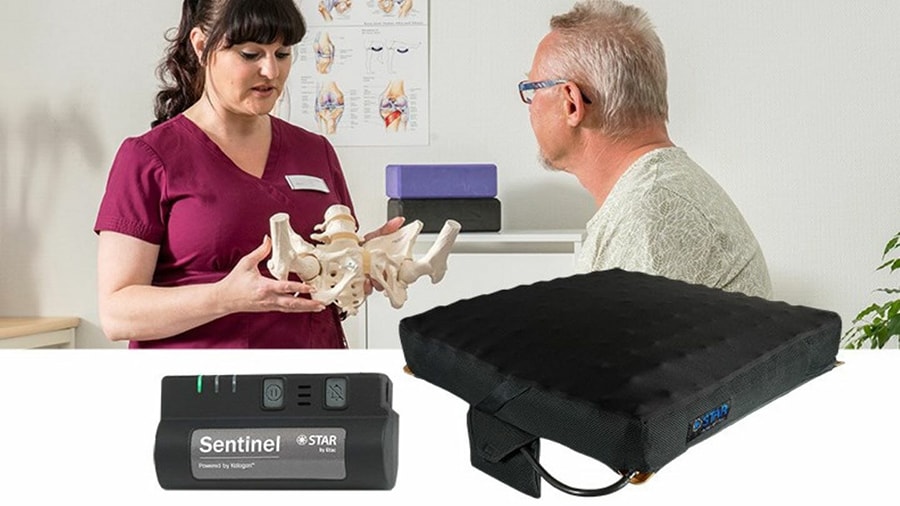Partnership enhances quality and availability of smart seating cushions for wheelchair users globally

Etac, a developer of assistive devices and patient handling equipment, and Kalogon, a smart seating solutions specialist, have joined forces to bolster the quality and availability of smart seating cushions for wheelchair users worldwide.
The partnership aims to enhance Etac’s Star cushion line powered by Kalogon’s air management system to give wheelchair users a more customised and innovative pressure care solution.
Etac’s range of Star vertical air cell cushions helps clinicians to support individual needs for pressure redistribution. With solutions for stability and positioning in the StabilAir and StarLock cushions, the Star brand offers trusted pressure care solutions for users.
“Etac has a 50-year legacy of promoting user abilities and independence through our assistive devices, and teaming up with innovative companies like Kalogon ensures we can continue to lead the state of the art in pressure care,” said Magnus Björkqvist, SVP Wheelchairs and Pressure Care at Etac. “Kalogon’s air management systems are a game changer in our space, and together we can deliver the latest pressure care solutions on the market to everyone who needs them.”
Kalogon’s range of smart cushion products combine machine learning and air cell technology to redistribute weight and increase comfort by maintaining blood flow in wheelchair users. A connected app enables wheelchair users, caregivers, and clinicians to personalise their experience based on each user’s specific needs.
Early users of Kalogon’s Orbiter reported significant improvements in overall comfort, accelerated healing, and an ability to sit up to two times longer, according to the firm.
Tim Balz, CEO and founder of Kalogon, commented: “Combining our innovations in smart seating with Etac’s expertise in pressure injuries is a win-win for our businesses and customers.”
Recently, Kalogon announced the pre-order for its Booster product, powered by its Air Management System (AMS). This controller enhances most existing air flotation wheelchair cushions to control and maintain pressure set by a clinician.
The latest NHS England figures show that around 20 percent of children waited over 18 weeks for a wheelchair or a wheelchair modification.

